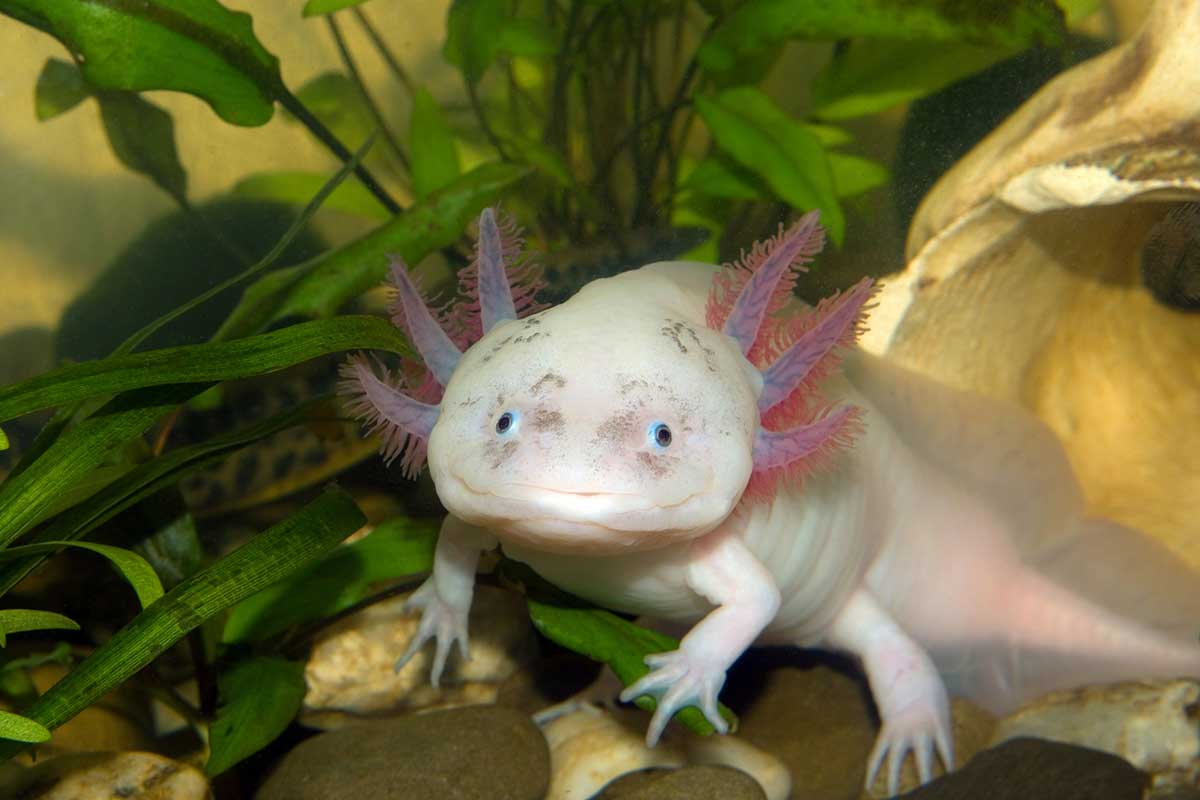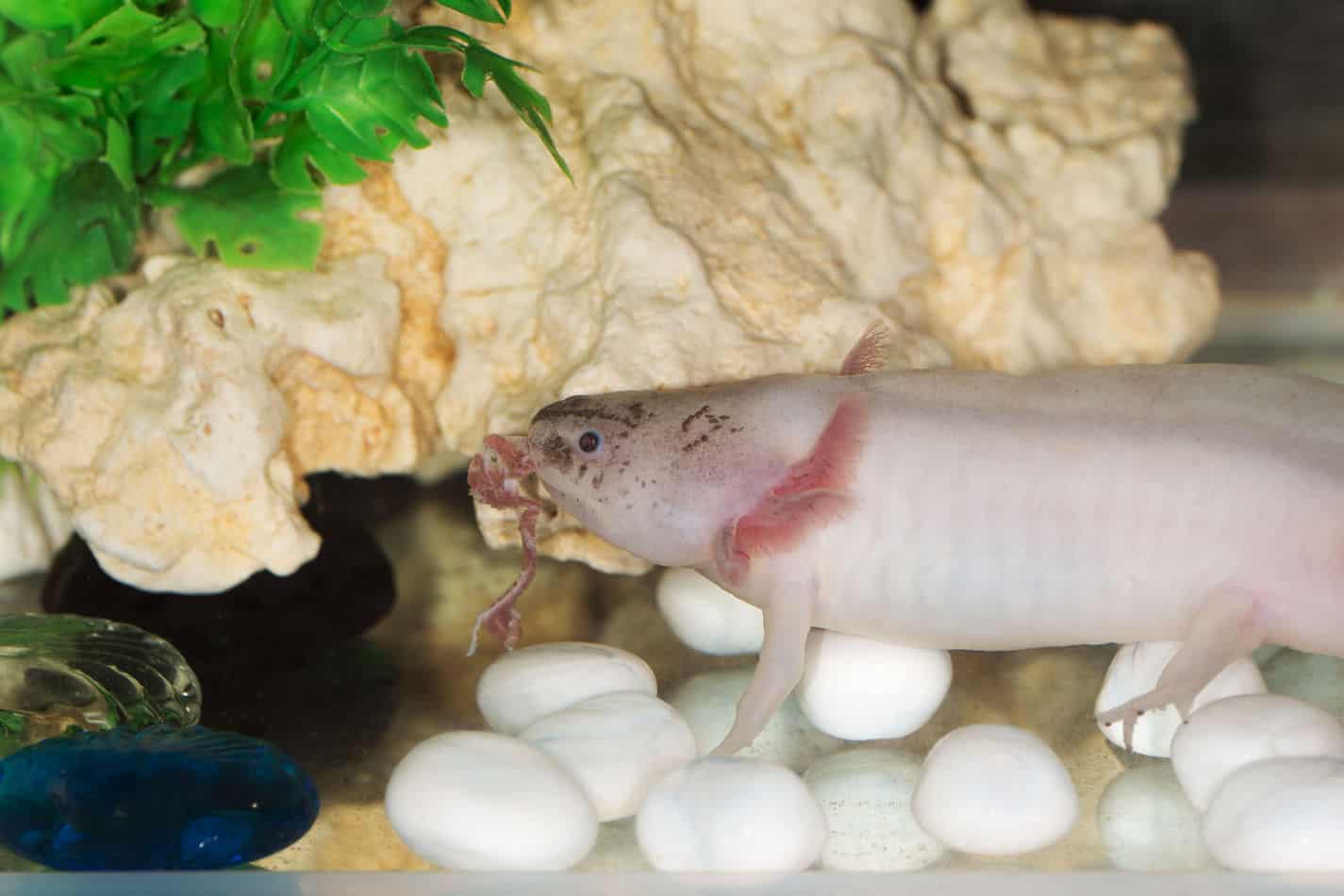Axolotl meals embarks on a journey of discovery, exploring the dietary wants of those fascinating creatures with gaya bahasa santai resmi. From stay delicacies to frozen delights, we delve into the culinary preferences of axolotls, guaranteeing their well-being and optimum development.
Our complete information unravels the intricacies of axolotl diet, empowering you with the information to supply a balanced and enriching food plan. Be a part of us as we navigate the waters of axolotl sustenance, guaranteeing their well being and vitality for years to come back.
Axolotl Food regimen
Axolotls are carnivorous amphibians that require a particular food plan to satisfy their dietary wants. This consists of quite a lot of stay and frozen meals, in addition to occasional supplementation with nutritional vitamins and minerals.
The dietary necessities of axolotls embrace proteins, fat, carbohydrates, nutritional vitamins, and minerals. Proteins are important for constructing and repairing tissues, whereas fat present vitality and assist take up nutritional vitamins. Carbohydrates present vitality, and nutritional vitamins and minerals are important for total well being and well-being.
Appropriate Meals for Axolotls
A wide range of stay and frozen meals might be supplied to axolotls, together with:
- Blackworms
- Bloodworms
- Brine shrimp
- Daphnia
- Earthworms
- Frozen fish meals
- Mealworms
- Tubifex worms
You will need to observe that some meals, similar to mealworms and earthworms, ought to solely be supplied often as they are often excessive in fats.
Feeding Frequency and Portion Sizes
Axolotls needs to be fed 2-3 instances per week. The quantity of meals supplied needs to be concerning the dimension of the axolotl’s head. You will need to keep away from overfeeding, as this will result in weight problems and different well being issues.
Stay Meals for Axolotls

Incorporating stay meals into an axolotl’s food plan can present enrichment and dietary advantages. Nevertheless, cautious consideration should be given to the varieties of stay meals supplied, in addition to their potential dangers.
Varieties of Stay Meals for Axolotls
Appropriate stay meals for axolotls embrace:
- Blackworms:Excessive in protein and fats, making them a superb development meals for younger axolotls.
- Tubifex worms:A nutritious and simply digestible possibility, however needs to be fed sparingly resulting from their excessive fats content material.
- Brine shrimp:A great supply of protein and important fatty acids, however needs to be supplied as a deal with somewhat than a staple meals.
- Daphnia:Small crustaceans that present an excellent supply of protein and calcium.
- Mosquito larvae:A nutritious and readily accepted meals, however can carry parasites if not correctly cultured.
Culturing and Sustaining Stay Meals
Culturing stay meals is usually a cost-effective manner to make sure a constant provide. Nevertheless, correct upkeep is important to stop contamination and illness transmission:
- Blackworms:Could be cultured in shallow trays with a muddy substrate and fed a food plan of fish flakes or yeast.
- Tubifex worms:Could be cultured in related circumstances as blackworms, however require a barely deeper substrate.
- Brine shrimp:Could be hatched from eggs in saltwater and fed a food plan of stay algae or business brine shrimp meals.
- Daphnia:Could be cultured in ponds or aquariums with quite a lot of vegetation and algae.
- Mosquito larvae:Could be collected from pure sources or cultured in containers with standing water and a supply of meals, similar to yeast or fish flakes.
Advantages and Dangers of Feeding Stay Meals
Advantages:
- Present enrichment and stimulate pure feeding behaviors.
- Excessive in protein and important vitamins.
Dangers:
- Can carry parasites or ailments if not correctly cultured or sourced.
- Could result in overfeeding or impaction if not supplied carefully.
- Could be costly to buy or tradition in massive portions.
Frozen and Ready Meals for Axolotls: Axolotl Meals

Frozen and ready meals provide comfort and dietary worth for axolotls. These meals are sometimes made out of entire prey objects, similar to bloodworms, brine shrimp, and mysis shrimp, and are flash-frozen or freeze-dried to protect their vitamins.
Benefits of Frozen and Ready Meals
* Comfort:Frozen and ready meals are straightforward to retailer and put together, saving effort and time.
Dietary worth
These meals retain most of their dietary worth in the course of the freezing course of.
Selection
Frozen and ready meals provide quite a lot of choices to satisfy the dietary wants of axolotls.
Disadvantages of Frozen and Ready Meals
* Price:Frozen and ready meals might be costlier than stay meals.
Potential for contamination
Frozen and ready meals might include micro organism or parasites if not correctly dealt with.
Suggestions for Deciding on and Making ready Frozen and Ready Meals for Axolotls
* Select meals which can be particularly formulated for axolotls.
- Thaw frozen meals earlier than feeding to keep away from digestive points.
- Rinse freeze-dried meals earlier than feeding to take away extra salt.
- Feed quite a lot of frozen and ready meals to make sure a balanced food plan.
Feeding Strategies for Axolotls

Feeding axolotls requires particular strategies to make sure they obtain the suitable diet and preserve optimum well being. This part will discover the assorted strategies used to feed axolotls, together with hand-feeding and the significance of water high quality throughout feeding.
Hand-Feeding
Hand-feeding axolotls is a typical technique that permits for exact management over the quantity and kind of meals consumed. It includes utilizing a pair of tweezers or a pipette to softly introduce meals objects into the axolotl’s mouth.
This method is especially helpful for feeding sick or injured axolotls which will have issue discovering or capturing meals on their very own. It additionally permits for the administration of particular medicines or dietary supplements as wanted.
Water High quality
Water high quality is essential throughout feeding, as axolotls take up vitamins by way of their gills. Poor water high quality can result in well being issues, together with decreased urge for food and impaired digestion.
Earlier than feeding, it’s important to make sure that the water is clear and freed from particles or dangerous chemical compounds. Common water modifications and using a water filter may help preserve optimum water high quality.
Particular Concerns for Axolotl Feeding
Feeding axolotls requires cautious consideration of assorted components that may affect their consuming habits. Understanding these components and addressing widespread feeding issues is important for guaranteeing their well being and well-being.
Components Affecting Axolotl Feeding Habits
- Age:Youthful axolotls have completely different dietary wants and feeding habits in comparison with adults.
- Measurement:The dimensions of the axolotl determines the quantity and frequency of feeding.
- Well being:Axolotls with well being points might expertise modifications of their urge for food and feeding conduct.
- Water high quality:Poor water high quality can stress axolotls and have an effect on their feeding habits.
- Environmental stress:Modifications within the surroundings, similar to overcrowding or introduction of recent tankmates, can impression axolotl feeding.
Addressing Frequent Feeding Issues
- Underfeeding:If an axolotl just isn’t consuming sufficient, think about growing the frequency of feeding or providing extra meals.
- Overfeeding:Overfeeding can result in well being issues. Monitor the quantity of meals given and alter accordingly.
- Refusal to eat:If an axolotl refuses to eat, examine for indicators of sickness or stress. Seek the advice of a veterinarian if the issue persists.
- Vomiting:Vomiting is usually a signal of a digestive drawback or stress. Seek the advice of a veterinarian to find out the trigger.
Feeding Axolotls at Totally different Life Phases, Axolotl meals
The feeding wants of axolotls differ relying on their life stage. Juvenile axolotls require extra frequent feeding of smaller prey, whereas grownup axolotls might be fed much less incessantly.
Feeding Axolotls with Well being Circumstances
Axolotls with well being circumstances might require specialised feeding issues. For instance, axolotls with digestive points may have smaller, extra frequent meals.
Generally Requested Questions
What’s the finest meals for axolotls?
A different food plan that features stay meals similar to brine shrimp, bloodworms, and earthworms, in addition to frozen and ready meals like axolotl pellets and frozen mysis shrimp, is good.
How typically ought to I feed my axolotl?
Grownup axolotls needs to be fed each 2-3 days, whereas juveniles and rising axolotls might require every day feedings.
What are the indicators of an axolotl that’s not consuming?
Lack of urge for food can point out sickness, stress, or improper water circumstances. Seek the advice of a veterinarian in case your axolotl stops consuming for various days.

